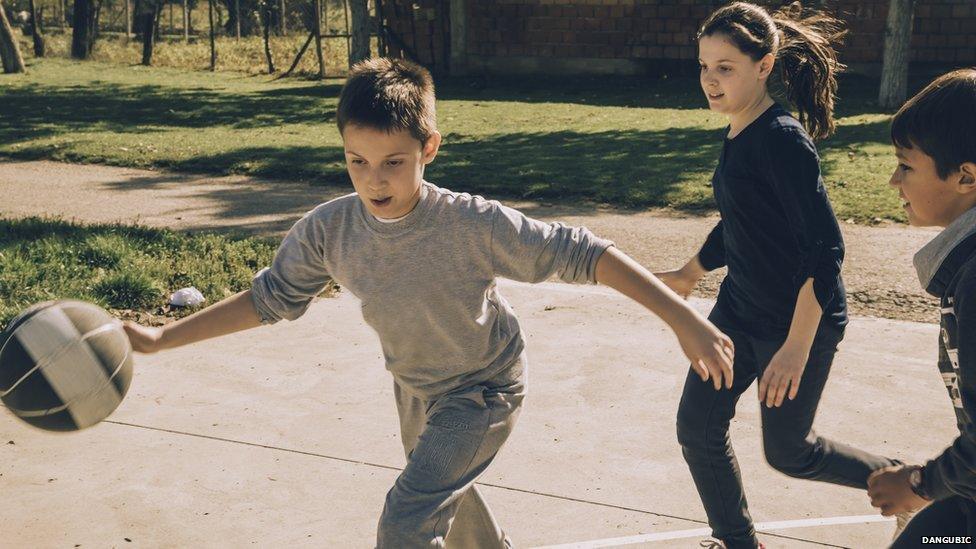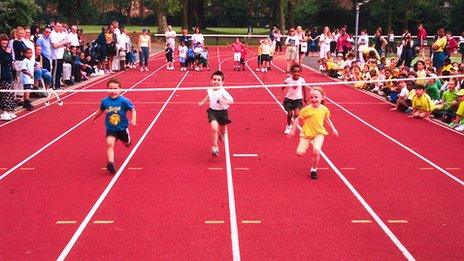Sprinting quickens the mind, researchers find
- Published

The exercises were designed to replicate activities of children in the playground
Bursts of intense exercise during the school day improve pupils' focus and concentration in class, a study says.
Sports scientists found the youngsters became mentally quicker and sharper after a series of short sprints and slightly longer periods of walking.
The Nottingham Trent University team said that by doing exercise the children were effectively speeding up their minds.
The effects on cognitive ability lasted for about an hour.
The study, published in the journal Preventative Medicine Reports, involved a group of 44 12-year-olds undertaking a series of ten-second sprints, interspersed with 50 seconds of walking.
Attention
These particular exercises were chosen to replicate the kind of activities that children usually do in the playground - running for a short while, then stopping then running again for a short while.
They were then required to sit some tests measuring brain function.
These measured attention and focus by asking participants to identify the colour a word is written in rather the word itself.
For example, if the word "green" is written in blue letters, then "blue" is the correct answer.
Dr Simon Cooper, the lead researcher, said: "These tests measure cognitive ability - concentration levels, ability to focus, memory, attention - all the things you need for learning.
"Essentially, following the exercise the children were mentally quicker, but still as accurate in their answers to the tests.
"By doing exercise, they are speeding up their minds ."
Dr Cooper added: "Our findings are of great importance to schools, demonstrating the importance of physical education in the curriculum. They support the inclusion of high-intensity sprint-based exercise for adolescent pupils during the school day."
- Published14 February 2013

- Published6 February 2014
